Cruising with hundreds or even thousands of people means you'll be sharing common spaces on the ship. Ensuring these areas are clean and safe is crucial.
Back in the 1970s, the Centers for Disease Control and Prevention (CDC) created the Vessel Sanitation Program to keep cruises clean and respond to any outbreaks of infectious diseases across the industry. Their main focus is on tackling gastrointestinal illnesses like norovirus.
Let's take a closer look at how the VSP works to protect cruisers from getting sick and having to stay cooped up in their cabins instead of enjoying their vacation.
So how does the CDC ensure clean cruise ships?
What's the CDC Vessel Sanitation Program?
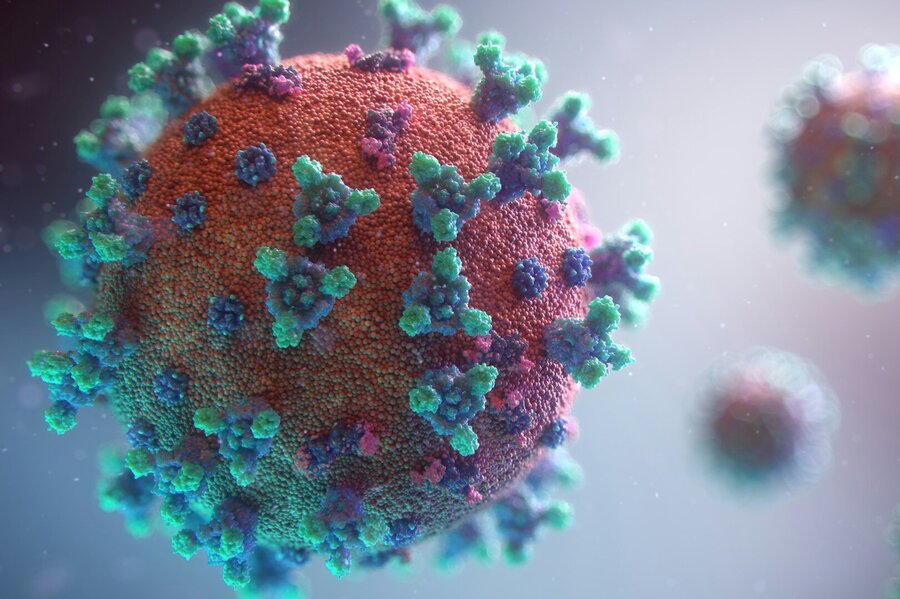
Source: Fusion Medical Animation/Unsplash
The Vessel Sanitation Program is an initiative to help the cruise industry prevent and control the spread of gastrointestinal illnesses, such as norovirus, on passenger vessels. This program is part of the Centers for Disease Control and Prevention (CDC) and has the authority of the Public Health Service Act.
Under the CDC's Vessel Sanitation Program, any ship that carries 13 or more passengers and visits US ports is legally required to undergo random, unannounced inspections for cleanliness and sanitation.
When cruise ships are in US ports, program inspectors will board and evaluate several key areas, including galleys, restaurants, medical facilities, pools, hot tubs, and other public spaces that pose a high risk of contamination. The scoring system is out of 100 points, and ships lose points for each infraction. The program maintains high standards, and scores of 85 or lower are considered failing.
The Vessel Sanitation Program also aims to train cruise ship employees on public health practices. According to the program's website, the CDC provides health education and reliable, up-to-date public health information to the cruise industry, travelers, public health professionals, state and local health authorities, and the media.
Inspection areas
VSP inspectors conduct thorough inspections of cruise ships to ensure passenger safety and health. The key areas of inspection include:
- Medical facilities. Inspection of medical facilities, including documentation for gastrointestinal illness surveillance and medical logs.
- Potable water system. Monitoring of water quality from sourcing to storage, ensuring proper purification and disinfection.
- Swimming pools and whirlpool SPAs. Inspection of filtration, disinfection, and safety measures.
- Galleys and dining rooms. Assessment of food protection, employee hygiene, and facility maintenance.
- Child activity centers. Evaluation of equipment, disinfection procedures, and infection control measures.
- Hotel accommodations. Inspection of cleaning practices and outbreak response protocols.
- Ventilation systems and common areas. Assessment of maintenance, cleanliness, and pest management.
How frequently are cruise ships evaluated?
The inspections happen regularly and without any prior notice. The idea is to check the cleanliness and sanitation of the operations without letting the officers and crew know when the inspectors are coming. Cruise ships are inspected twice a year as part of this program.
"If a ship sails outside of the United States for a long time, it may not get inspected twice a year but it'll be checked again when it returns to the United States," the CDC explains.
You can rest assured that the ships will be inspected if they fall under the VSP's authority.
CDC cruise ratings: the cleanest cruise ships
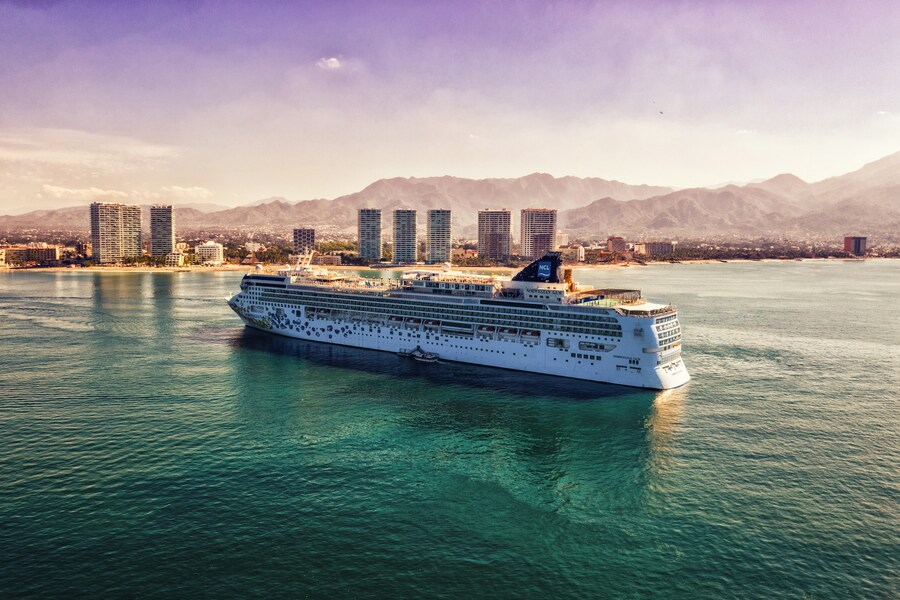
Source: Alonso Reyes/Unsplash
Cruise ships are often questioned about their cleanliness but some vessels have proven to be spotless. At the time of writing, the following cruise ships received a perfect score of 100 out of 100 on their cleanliness ratings within the past year:
- Radiance of the Seas (Royal Caribbean)
- MSC Meraviglia (MSC Cruises)
- Norwegian Bliss (Norwegian Cruise Line)
- MSC Seashore (MSC Cruises)
- Norwegian Sky (Norwegian Cruise Line)
CDC cruise ship ratings: the dirtiest cruise ships
Are cruises always clean? Here are the cruise ships that recently failed their health inspections. It's a short list, with only 2 ships. You can click on each ship's name to see a breakdown of its inspection score:
- Paradise (Margaritaville at Sea)
- MSC Seaside (MSC Cruises)
It's important to note that both of these ships have since passed their inspections. Paradise earned a 92 on July 2nd, 2024 and MSC Seaside got a 92 on July 17th, 2023. A failing score doesn't necessarily mean the ship is dirty or that your cabin won't be clean. Ships can lose points for issues like improper food storage or poorly maintained pools.
Are cruise ships unclean? Do cruises make you sick?
CDC officials take cleanliness on cruise ships very seriously. So, the answer is no, cruise ships aren't dirty, and you won't get sick from being on one. When cruise ships follow CDC protocols, they maintain high standards of cleanliness.
The chances of you getting sick on a cruise are no higher than anywhere else where you're around a lot of people. In fact, according to the CDC, the likelihood of getting sick is lower on cruise ships.
The CDC says that people often associate cruise ships with illnesses like norovirus but these types of illnesses are relatively uncommon on cruise ships. The math shows that you're less likely to catch a gastrointestinal illness on a ship than in many places on land.
According to the CDC, only about 1% of all annual US norovirus cases happen on cruise ships. The numbers are much higher in nursing homes, hospitals, schools, and restaurants, which collectively account for around 91% of norovirus cases.
When do cruise lines report outbreaks under the CDC Vessel Sanitation Program?
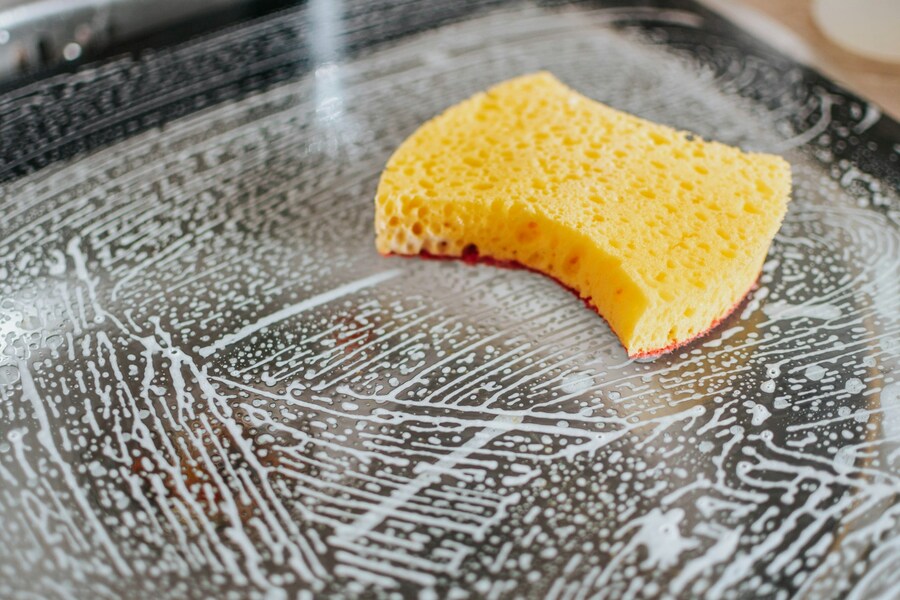
Source: Pille R. Priske/Unsplash
As per the CDC guidelines, cruise ships must inform the VSP officials about any cases of gastrointestinal illness at least 24 hours before docking at any US port.
If 2% or more of the passengers and crew on board are sick, the cruise ships are required to provide additional reports to the CDC within 2 weeks of arriving in the United States. The VSP officials will investigate further if the number of ill passengers reaches 3% or more.
Where can I find more details about the CDC Vessel Sanitation Program?
The CDC offers various resources on its website to provide more information about the VSP. You can explore details on how the program is enforced and check the latest inspection scores for your preferred cruise ship. In addition, the links throughout this article will guide you to learn more about the CDC VSP's inspection process, crew training, and procedures for reporting and investigating outbreaks.
To access these resources, you can visit the following sections on the CDC's website:
Conclusion
Cruise ships are generally considered safe and well-maintained, thanks to the CDC's Vessel Sanitation Program. The United States Coast Guard ensures the ships' safety, while the VSP focuses on keeping everything clean. Twice a year, each passenger ship that visits US ports undergoes a random, unannounced CDC VSP inspection, and the guidelines are stringent.
CDC officials, who are highly trained, inspect everything from proper food handling to the cleaning and sanitation of high-traffic public areas. They also provide training to the crew, educating them on best practices.
Next time you're planning a cruise, check the VSP website to see how your ship has recently scored. This information can give you peace of mind as you set sail.
Ditch cruise port chaos: secure hassle-free parking with ParkingNearAirports.io!
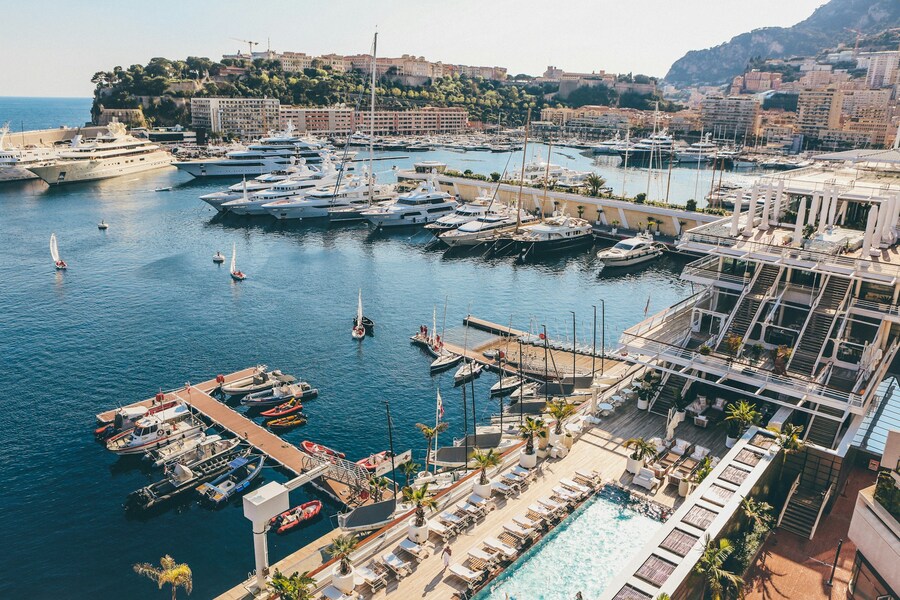
Source: Nick Karvounis/Unsplash
It's pretty clear that everyone wants to save as much money as possible and get excellent services at the same time, especially while traveling. Prefer to get to the cruise port by your own car? If so, please draw special attention to this part of the article.
We suppose you have used to choose on-site parking if you prefer to get to the cruise port by your own vehicle. Most people think that it's much more convenient and faster, as it's the nearest area to the place a ship leaves from. However, they probably forget that this type of parking is too costly. Besides, you will have to face the following unpleasant moments:
- You will need to find a spot in a crowded lot,
- You will need to carry the luggage all the way down the parking lot,
- You must pay expensive fees with no service.
Sounds terrible, right? Is there any solution in such a situation, you may ask? We're happy to say – of course, there is one! If you choose to use the services provided by off-site parking, you won't definitely regret it. So let's take a closer look at this parking type.
What is actually off-site parking?
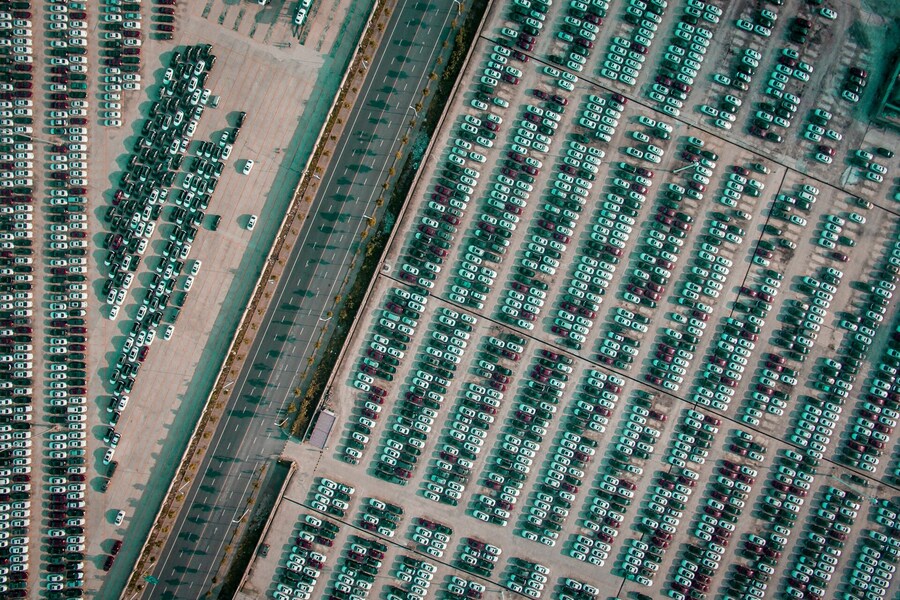
Source: Thana Gu/Unsplash
Obviously, no one wants to face all of such difficulties we described above, and you can easily avoid them if you choose an off-site parking option. So let's take a look at how it works.
When you come to the entrance, the staff member pulls your baggage out of your car and loads it to the shuttle, which will take your bags and you later to the cruise port you're leaving from. Then they will find a parking spot and park your car there for you.
Please don't worry about the few miles, which usually separate the parking lot and the cruise port. Off-site parking usually provides free shuttles to and from the cruise port for its customers. Thanks to this, you have no worries about getting stuck in traffic on the way to the cruise port during the peak times. So all you need to do is choose the best time for you and inform the parking lot staff.
In addition, this type of parking is much cheaper, and this is good news, as nobody wants to waste money. Therefore, off-site parking is the perfect option to receive excellent service and save money at the same time.
You can find the best deals right here!
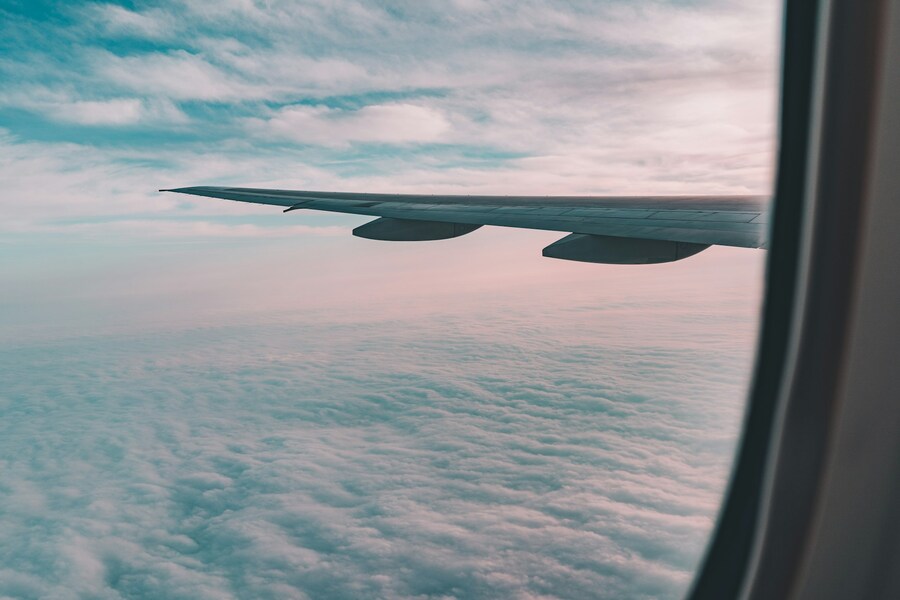
Source: Nicolas J Leclercq/Unsplash
If you're looking for the best deals for cruise ports, you're in the right place.
We are glad to inform you that our booking platform, ParkingNearAirports.io, provides the services for top cruise ports in Florida, Louisiana, Maryland, New Jersey, and Texas. Besides, we offer the best prices on airport car parking and bundles hotel and parking packages.
Our partners are the most reliable parking providers outside the top cruise ports in the United States. We offer their services for passengers who are looking for safe and secure parking for their vehicles.
In addition, we can arrange valet parking, self-parking, or a vehicle to pick you up from the hotel to the terminal and vice versa. Just let us know the dates, choose your preferred services, and we'll get it done for you.
It only takes a few minutes to make a reservation. Get the most affordable rates and experience hassle-free off-site parking.
To understand it better, let's take a good example. Imagine that you live in New Jersey, United States. If you're planning a trip to Norwegia, you can choose cheap parking near Cape Liberty Cruise Port. If you're coming from any other state or city, the situation is the same. So it depends just on where you're leaving from.
Also, please don't forget about the cruise port coupons. Such a coupon can easily help you save money at the beginning of your trip, making the price for parking almost two times less. So if we talk about the Cape Liberty Cruise Port (CLZ), you can use special Cape Liberty Cruise Port parking coupons.
You can find the best deals, Cape Liberty Cruise Port parking rates, and other essential parking information for US cruise ports on our official website.






